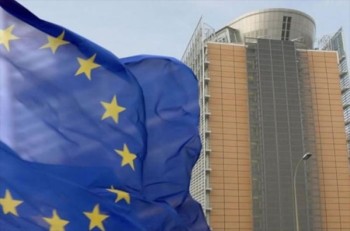BiH and the EU
The EU and Bosnia and Herzegovina have established diplomatic relations. The EU is represented in the country by a Delegation of the European Union (see ‘Our Role‘). In the context of the Common Foreign and Security Policy, the Council of the European Union has also mandated a European Union Special Representative in Bosnia and Herzegovina and the European Union Force Althea. From 2003 – 2012, the Union mandated a Police Mission (EUPM).
In Thessaloniki in 2003, the Council of the European Union declared on the Western Balkans: “The future of this region is in the European Union.” Bosnia and Herzegovina has an EU membership perspective and relations between the Union and the country are developing in this context.
For a short summary of relations between the EU and Bosnia and Herzegovina, see series 2 of these short audio-visual clips at: www.youtube.com/ovojeunija
Current status of relations
The first visible effect of the European integration process for the citizens of BiH was the introduction of a visa-free regime for holders of biometric passports on 15 December 2010.
The Stabilisation and Association Agreement (SAA) signed on 16 June 2008 in Luxembourg, established the framework for implementation of legal, administrative, institutional and economic reforms that will lead the country closer to the EU. An Interim Agreement on Trade and Trade Related Matters was put into force (from 1 July 2008). As a result, the free trade area between EU and BiH was established and the EU is the main trading partner of the country. Additionally, BiH benefits from the EU’s unilateral autonomous trade preferences for countries and territories participating in or linked to the Stabilisation and Association process.
Following completion of the relevant procedures set out in the 15 December 2014 Conclusions of the Foreign Affairs Council of the EU (http://archive.europa.ba/wp-content/uploads/2015/05/delegacijaEU_2014121515000547eng.pdf) , the SAA entered into full force on 1 June 2015. The obligations for BiH authorities have thus significantly increased, extending the scope of reforms from trade-related matters to the whole body of EU law.
On 15 February 2016, the application of Bosnia and Herzegovina for EU membership was submitted by the Chair of the Presidency of Bosnia and Herzegovina to the Presidency of the Council of the EU. The European Commission sent over a detailed Questionnaire to BiH in December 2016.
Next steps
• The Commission makes a recommendation to the Council of the European Union (27 Member States) on whether candidate status may be granted to BiH, and may set a date for opening accession negotiations.
• On completion of the negotiations, a Treaty of Accession is signed and ratified by the Member States and the European Parliament gives its assent.
• The country joins the EU on a given date.
Financial assistance and trade relations
Between 2007 and 2013, Bosnia and Herzegovina benefitted from €615 million from the Instrument for pre-accession assistance (IPA) which aims at providing targeted financial assistance to countries which are candidates and potential candidates for membership to the EU. A second phase of IPA, from 2014 – 2020 is now under way with at least €165 million allocated for Bosnia and Herzegovina in the first stage. .In particular, IPA helps to strengthen democratic institutions and the rule of law, reform public administration, carry out economic reforms, promote respect for human as well as minority rights and gender equality, support the development of civil society and advance regional co-operation, and contribute to sustainable development and poverty reduction.
The EU is the main trading partner of BiH. BiH has benefited from EU market access through the introduction of the so-called Autonomous Trade measures since 2000. Following the entry into force of the Interim Agreement, access of products from Bosnia and Herzegovina to the EU expanded, and EU exports to the country have been granted trade preferences.
According to the Progress Report for 2014, BiH has achieved a high level of trade integration with the EU. The EU remains Bosnia and Herzegovina’s main trading partner, increasing its weight further with Croatia’s EU accession as of 1 July 2013. Accordingly, the share of exports to the EU increased to 73.5 %, while imports from the EU decreased slightly to 60 % of total imports. The most important EU trade partners are Germany and Croatia. CEFTA countries remained the second single most important trading partner and accounted for some 16 % of merchandise exports and 11 % of imports of goods.
Meeting the requirements for the export of potatoes in July 2015 opens additional opportunities for development of country’s export potential and growth. Such progress is also expected in other relevant competitive sectors and trade related fields of the approximation to the EU. As related to the animal origin goods, the country is already allowed with exporting fish, raw hide, honey and sugar to the EU.



















